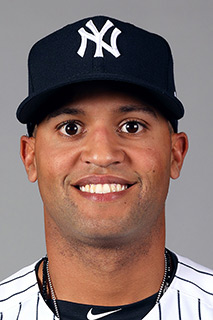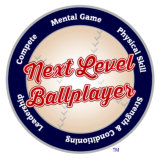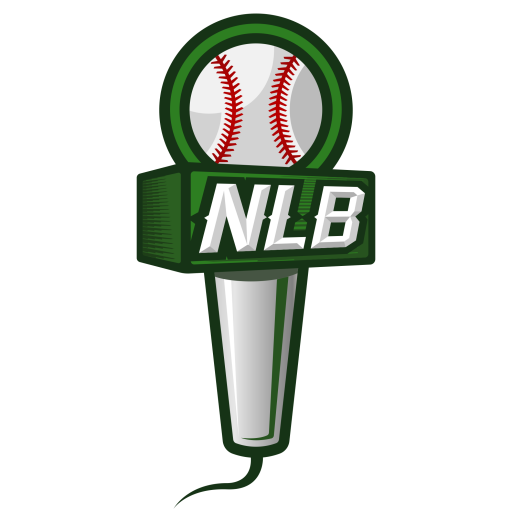
This week we are joined by one of the Yankees’ top prospects, Mason Williams. Mason is a speedy center fielder that was a fourth round draft pick by the Yankees in 2010. He’s been a standout prospect ever since. In his first full professional season, Mason hit .349 en route to being named 2011 Topps Minor League Player of the Year for the NY Penn League. At the beginning of the 2012 season, Mason was ranked the #4 prospect in the Yankees’ entire organization.
Many thanks to Mason for taking the time to sit down with Next Level Ballplayer to talk about his mental approach, the hardest adjustment to professional baseball, how he’s dealt with high expectations, his mindset when on first base and looking to steal, key to being a great defensive centerfielder, and his advice to ballplayers looking to make it to the next level.
This interview with Mason Williams is sponsored by Phoenix Bats. Phoenix Bats is a company that creates world-class custom wood bats for amateur and professional ball players around the world, as well as many other baseball and softball related products. Phoenix Bats is proud to have Mason exclusively use Phoenix Bats products.
What’s one baseball-related lesson you learned early on that has led to your success?
I learned pretty early that baseball is a mental sport. Back in high school, I’d play maybe 3-4 times a week. Now, I play every single day. When I finally picked up on the mental side of the game, it became a big aspect for me.
Can you give me some specific things that have really helped you with the mental side of the game?
Umm, let’s see here. You have to be strong in yourself. Okay, here’s an example. Baseball is different then football – you play every day! You may go 0-5 or 0-4 one night. You can’t wake up and dwell on a bad game because you have another game that night. You can’t dwell on the past. You can’t. You have a new game today. A new opportunity.
Anything specific that you do in the dugout or on deck circle to get focused for that upcoming at-bat?
I usually do one thing – I watch the pitcher. Many pitchers tip their curve ball or tip their pick off move to first ; it’s something you can find on the bench just by watching the pitcher. Also, I’m working on my timing with the pitcher. You don’t want to go up there not knowing his timing.
What’s been the most difficult adjustment to professional baseball for you?
For me, it’s playing every day. It’s not your high school schedule. We’re playing over a hundred games now. That’s definitely it.
Have you had to make any physical adjustments to your swing since joining the Yankees organization?
Not really. Not a lot. I have my same stance, same swing from when I got drafted. But when I got drafted, I was a little bit of a slap hitter. Now I’m learning to use my legs more during my swing and not slapping as much. I’ve been able to drive balls a little more.
What’s the best piece of hitting advice you’ve ever received?
Stay within yourself. You can’t go around thinking or trying to hit like someone else. You do what you can do and know that everything else will come to play.
Do you have a favorite hitting drill or something you like to go back to when you’re struggling a little bit?
No, not really. To me a lot of it is mental. If something’s off, I tell myself, “I can hit. I know I can hit.”
How have you dealt with high expectations that come with being a high draft pick and being rated as one of the Yankees’ top prospects?
I know I still have to come out here and play every day. Nothing’s changed from a year or two years ago – I have to still come out here to centerfield and bat lead-off. It’s the same thing I was doing before – play the game hard.
Let’s talk about base running. What goes through your mind when you get on first base and you’re looking to steal?
Definitely getting a good jump on the pitcher. Also trying to figure out his moves early in the game. The first time I get on base I’m trying to get him to throw over.
What does it take to be a great defensive centerfielder?
It’s all about getting a good first step. The best time to work on that is during batting practice. It’s really the only time you have to get good reads off the bat of a hitter. Fungos are good for practicing fly balls but taking fly balls and BP allow you to see the spins and carry of balls off the bat just like a game.
What does it mean to work hard?
For me there’s no other option but to work hard. My goal is to make it to the big leagues and I know I have to work hard to get there. If you want it that bad, you gotta put the work in. Go after it.
What’s one piece of advice you’d give to aspiring baseball players who want to take their game to the next level?
Throughout any season you’re going to go up and down. You gotta stay even-keeled and not get too high or too low.



